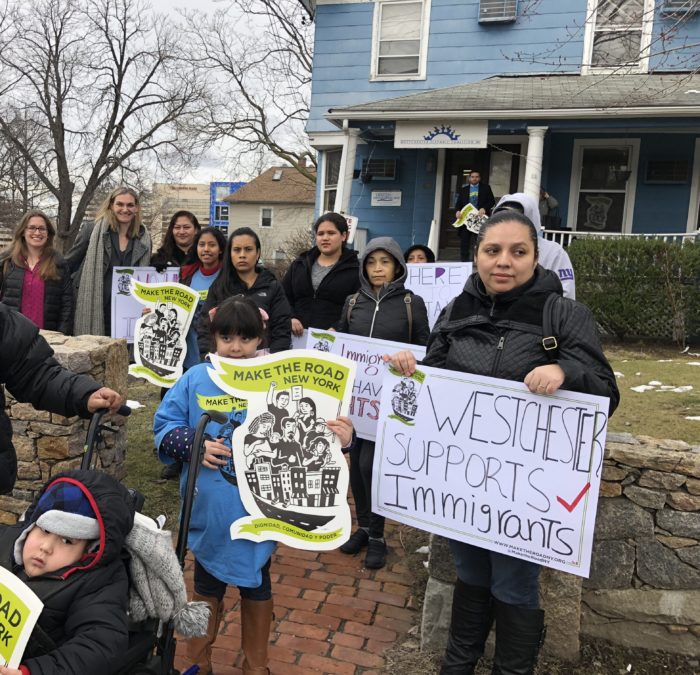What is a Member?
Make the Road is built on the principle that every person has expertise and wisdom and deserves to exercise real power, creativity, and leadership in their lives. Our organization depends on the expertise of our members, and supports them in developing their confidence and competence so that they can truly lead – our organization, our movement, and our society.
Clients, students and participants who want to make a long-term commitment to building Make the Road become dues-paying members to help sustain the organization and ensure accountability to the communities we serve.
We have 23,000+ members across New York City, Long Island, and Westchester County who lead multiple organizing committees across our issues and program areas. Members take on leadership roles in our campaigns, determine our priorities, and elect the representatives who comprise most of our Board of Directors. The vast majority of MRNY staff also come from the communities we represent.
"We need Make the Road New York because it's the only organization that fights for popular empowerment, and fights for justice and equality in our communities of color."
Join Today!
By becoming a member, you invest in our community and in our struggle for justice. Your participation ensures that Make the Road New York stays strong and true to this mission.
Visit one of our offices in Brooklyn, Queens, Staten Island, Long Island, or Westchester to start your membership.
If you wish to join Make the Road New York but identify as an ally more than a member of the communities of color that we represent, we encourage you to join Aliadxs, our network of allies and supporters who follow the lead of Make the Road New York members in their work for social justice.
Meet Our Members
Mayra Colon
Mayra Colon is a proud leader and advocate for Trans and immigrant rights from Puerto Rico. As a member of the Trans Immigrant Project (TrIP) at Make the Road for over a decade, Mayra has been fighting for better access to health services for Trans and Queer communities, to end employment and housing discrimination, and to decriminalize sex work in New York State. Mayra led the success of the repeal of the Walking While Trans ban by sharing her personal story – she had to carry a photo of the marriage certificate with her husband to demonstrate to the police that she was not doing sex work, and that his partner was not a client. Mayra remembers the era of discrimination and neglect towards the Trans and Queer community in the 80s. Through her advocacy, she commemorates those who came before her and fights for those that will come after her. Mayra leads with love, energy and creativity, and she is dedicated to building solidarity across different struggles.
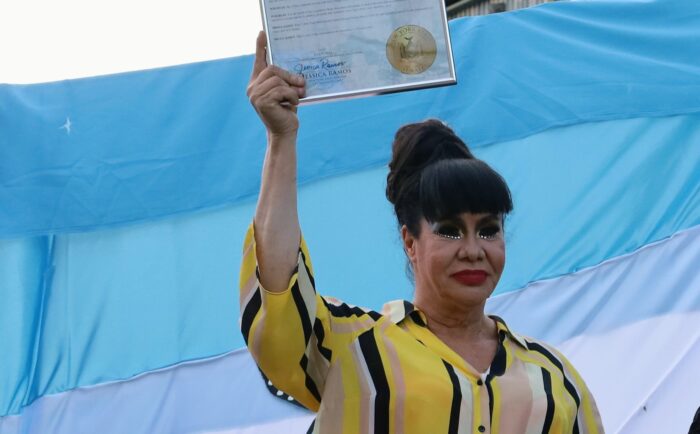
Norma Ureiro
Norma Ureiro is a resilient leader and advocates for Trans and immigrant rights. Born in Mexico, she immigrated to the United States in 2001. As a trans woman, she was met with employment discrimination and harassment. Fifteen years ago, Norma was introduced to Make the Road NY by the powerful late activist Lorena Borjas, and she has been a leader with the Trans Immigrant Project (TrIP) ever since. Her first-hand experience with police harassment, violence, and deportation motivated her to fight to decriminalize sex work and defund the NYPD Vice units. Norma has brought her courage, passion, and leadership to advocacy campaigns to change the laws hurting the Trans community. She led a fight that stopped police from arresting Trans people for carrying condoms and organized to repeal the Walking While Trans ban, a law that empowered police to arrest and discriminate against Trans people. Norma continues to be a source of inspiration, building a path for future generations in the Trans Immigrant community.
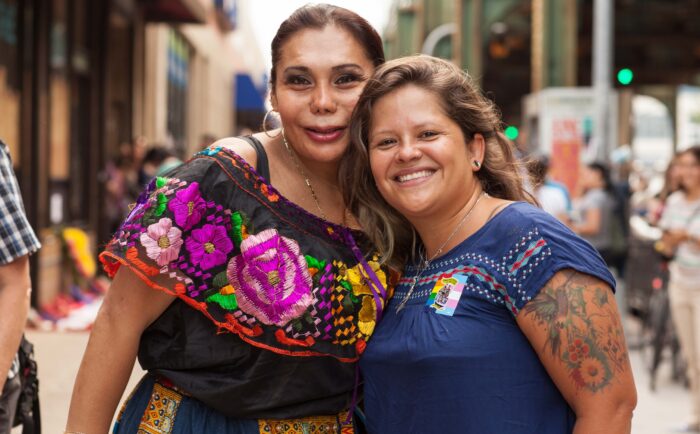
Gabina Santamaria
Gabina came to the United States over 20 years ago from Mexico. For the last 10 years, she has worked as a household cleaner, using harsh chemicals that were bad for her health, and struggling without access to healthcare or unemployment insurance. Gabina, the mother of a teenage daughter, first crossed paths with Make the Road NY after seeking support to fight against her eviction case. Since then, she enrolled in Make the Road NY’s ESOL classes, OSHA, and food handler courses to expand her knowledge and abilities to improve her lifestyle.
Gabina has taken her passion and leadership to the streets of New York, helping us win the Excluded Workers Fund in 2021 and fighting for expanded healthcare access. She attends rallies and press conferences, and visits elected officials in Washington DC, Albany, and New York City to educate them about our issues.
Watch this video featuring Gabina to learn more of her story >
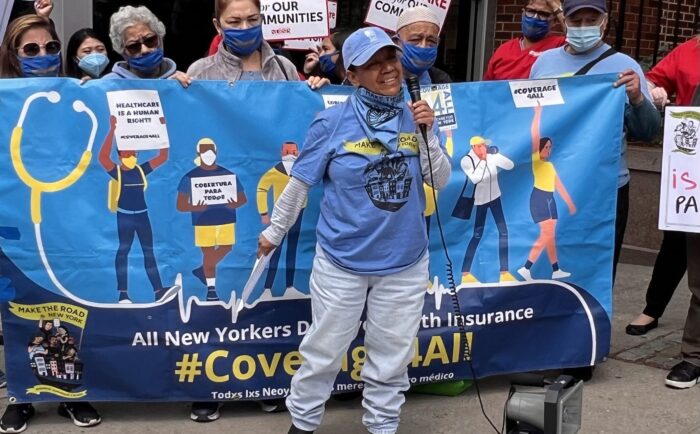
Clara Cortés
Clara Cortés arrived in Queens, New York, from Puebla, Mexico, over 20 years ago. Now a Long Island resident, she has been a member of our Suffolk County immigration committee since 2013, where she joined in the fight for immigration reform for undocumented immigrants across the country. Most recently, Clara has been advocating for the passage of Coverage for All, a campaign allowing New Yorkers of all immigration statuses access to quality healthcare. Due to her immigration status, Clara does not have consistent access to health insurance. She understands firsthand how hard it is to get access to medicine and medical visits, which is why she is passionate about this campaign. As a leader of our organization, she has shared her story with several press outlets, the governor, and other elected officials to show why our communities need a path to citizenship and Coverage for All.
Watch this video featuring Clara in the fight for Coverage for All! >
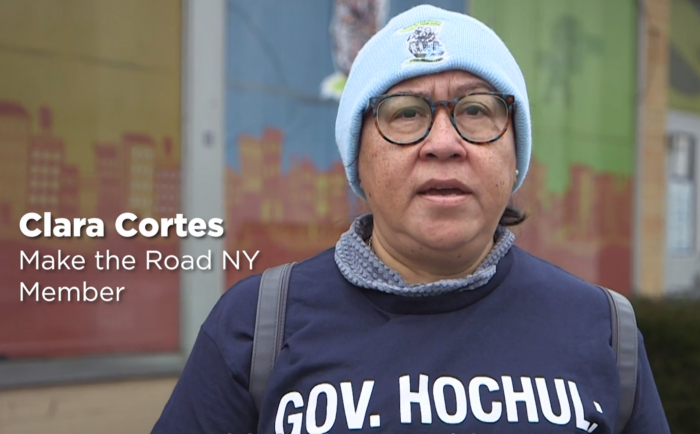
The Atalayas: One Family, a Brighter Future
Isela and Angel and their two children, Alesi and Angel Jr., came to the United States from Peru over a decade ago in search of economic opportunities. They settled in Suffolk County, where Isela worked cleaning the local public library at night and Angel was a day laborer. The children attended Brentwood High School.
Since then, they’ve all become involved in MRNY. Isela learned English through our adult education classes and became a leader in our campaign for immigration reform. She also joined MRNY’s housing committee to learn about tenants’ rights so she could advocate for herself with her landlord. When DACA was first announced, Alesi secured this form immigration relief with support from MRNY lawyers, and then became a leader in our Youth Power Project. And when Vilma, Isela’s elderly mother, was hit with unmanageable medical bills, MRNY advocates helped her renegotiate them. After Superstorm Sandy, Angel, who had worked at dangerous clean-up sites, trained in workplace health and safety with MRNY, learning about his rights as a worker and becoming involved with our immigrant rights organizing alongside his wife and daughter.
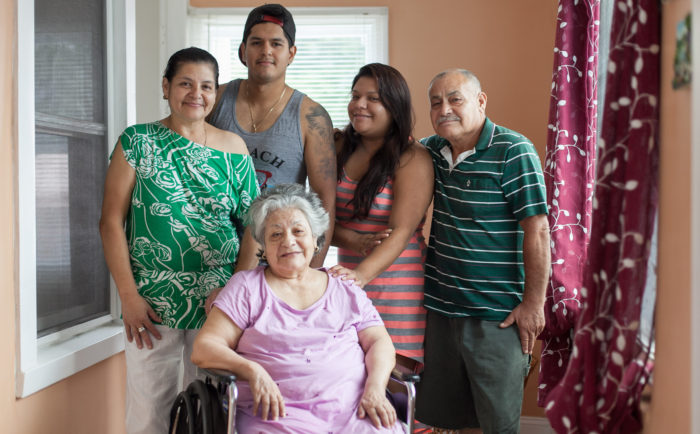
Daniel Cortes
Daniel Cortes wanted respect and fair treatment at work. Daniel came to the US 30 years ago, and has worked in the food industry for decades. For years, the owner of a restaurant where he waited tables took all of Daniel’s tips, giving him back just $15 per night. In another restaurant, he often worked from 10 in the morning until midnight, without overtime. For many years, pay was so low that Daniel worked two jobs to support his family. When Daniel got injured on the job while hauling heavy bags of sugar and huge jugs of milk, Make the Road helped him find a lawyer and fight to receive workers’ compensation. Daniel enrolled in our English classes to try to find work outside of the restaurant industry. Our organizing work caught Daniel’s attention immediately, and Daniel became one of our fiercest leaders in the workplace justice committee. He was a leader in our work on the Fight for $15, speaking to workers and the public about the need to raise the minimum wage, based on his personal experience. Daniel authored an op-ed on the importance of policies to prevent wage theft, and met with dozens of elected state officials about the need for stronger protections for workers.
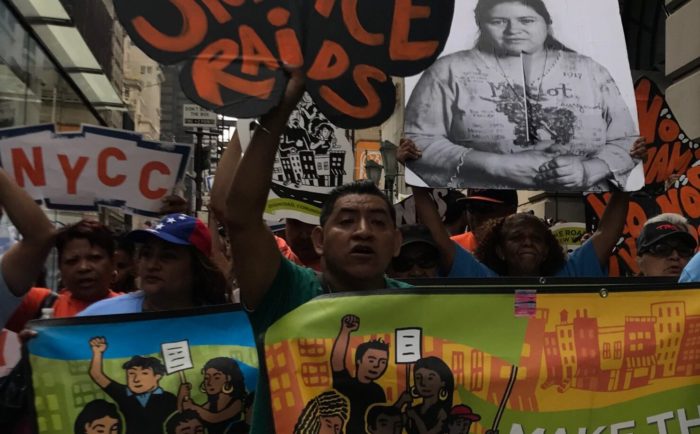
Maria Rubio Torres de Chavarria
Maria came to the US after surviving persecution in her home country, and later, cancer. MRNY’s health team enrolled her in Medicaid to cover the costs of her expensive treatments and connected her to our organizing programs, where she became active in our work to defend the Affordable Care Act and hold corporations accountable for their role in financing private prisons and immigration detention centers. Maria learned more and more organizing skills and became an outspoken leader of our Corporate Backers of Hate campaign. She has attended JPMorgan Chase shareholder meetings and directly questioned CEO Jamie Dimon on his company’s support for private immigration detention centers, an exchange which won national press coverage from dozens of media outlets.
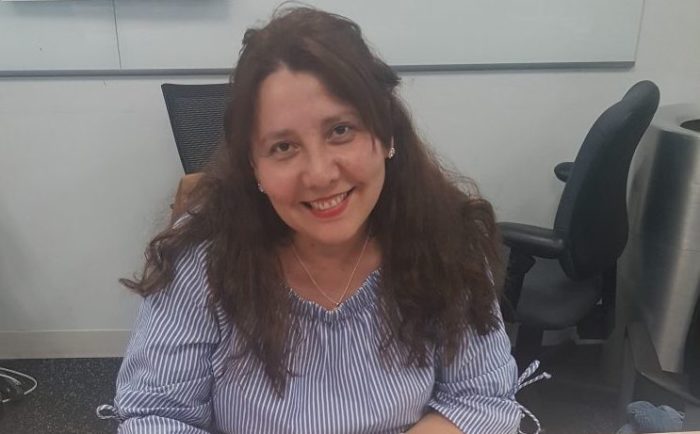
Maria Castillo
Maria Angelica Castillo’s landlord has been trying to drive her out since 2008, refusing to make repairs to an enormous hole in her floor and denying her other critical services, in an attempt to drive her family out of her Brooklyn apartment and hike the rent. She has succeeded in remaining in her home through legal help provided by Make the Road New York. Maria is a leader in MRNY’s tenant committee, BASTA, where she organizes her community to keep families in their homes and resist landlord harassment and exploitation. She is currently enrolled in English language classes at MRNY. Maria was recently featured in a BASTA video.
“Now I can honestly say that we live with more dignity,” Maria says. “But to live with dignity, you always have to fight for it.”
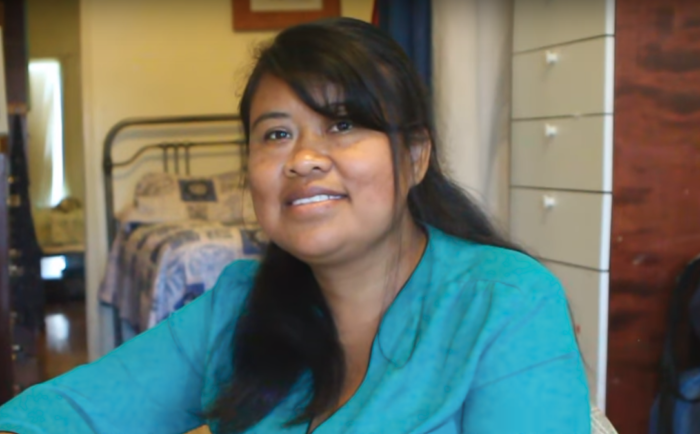
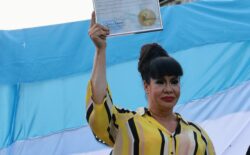
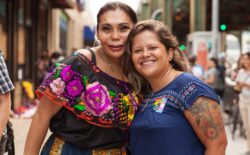
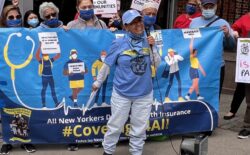
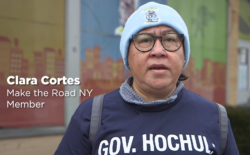
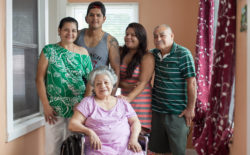
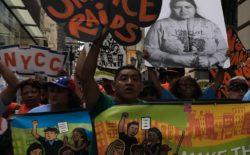
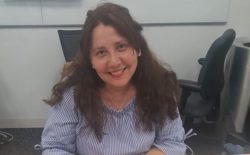
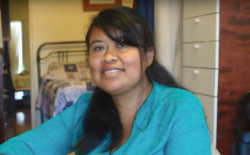
Our Neighborhoods
Residents of our core neighborhood of Bushwick, are among the poorest in the city: half of all households survive on less than $33,162 a year. Over 35% of households are made up of foreign-born immigrants, many of whom are undocumented. Bushwick is historically one of the most populous Latinx communities in the city and is home to some of MRNY’s most vibrant and creative organizing, from the annual Bushwick Pride march to the campaign that led to the creation of the Bushwick School for Social Justice and the Bushwick Campus Community School.
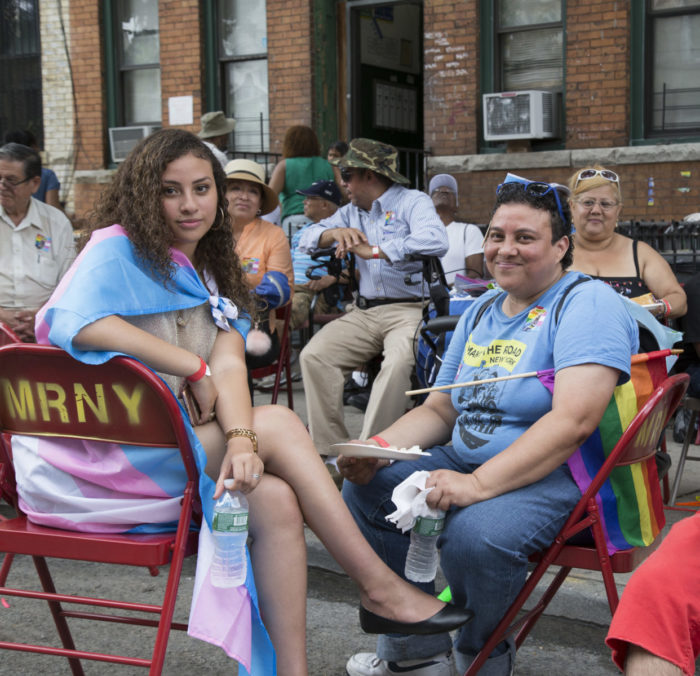

Our core neighborhood of Jackson Heights is among the most ethnically diverse neighborhoods in the country: more than half of residents were born outside the US. Many struggle with limited job opportunities, low educational attainment and lack of healthcare access. Jackson Heights is a hub for TGNCIQ New Yorkers, especially trans Latinas, who have fought back against waves of hate violence with inspiring and brave organizing.
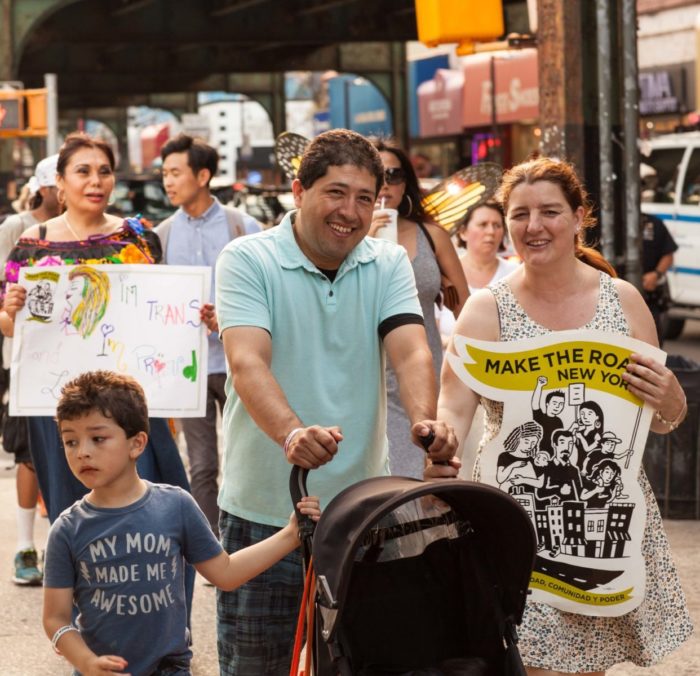

The enclave of Port Richmond on Staten Island's North Shore is home to the city's fastest-growing immigrant population including one of the biggest Mexican communities in NYC. MRNY members in Port Richmond typically speak limited English and lack of educational opportunities, decent healthcare and good jobs are three key issues. MRNY members in Staten Island have come together with other Staten Islanders of color to organize powerful campaigns for police justice, affordable housing and more.
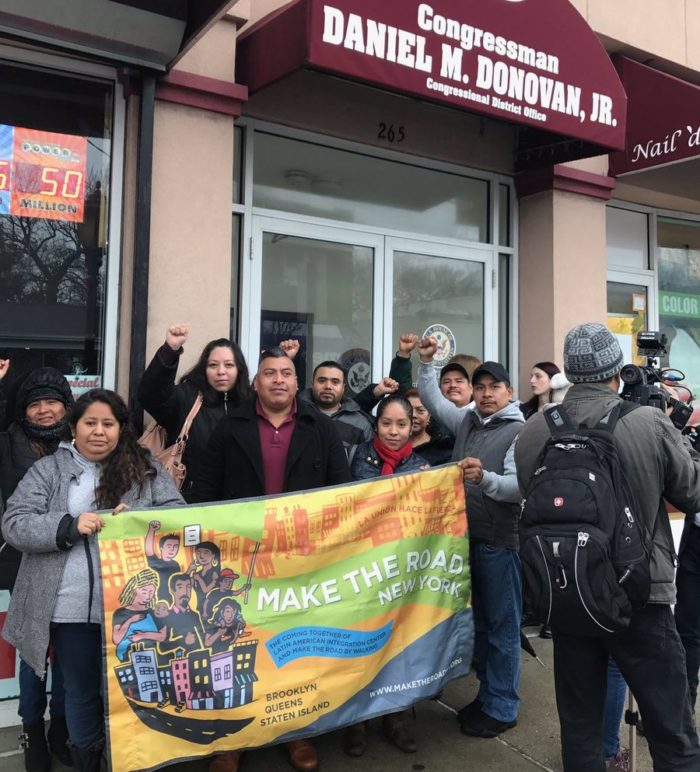

The Latinx community of Brentwood has boomed, and is now 70% of this hamlet’s total population. Immigrant Latinxs in Long Island are the target of anti-immigrant policy initiatives and public anger. Some public officials have built their careers on anti-immigrant platforms, inciting racism and xenophobia across the island. Today, Long Islanders who are Latinx have lower per capita incomes and lower educational attainment than black, Asian and white Long Islanders. Despite this, immigrants and residents of color are working together to build a more just and inclusive Long Island.
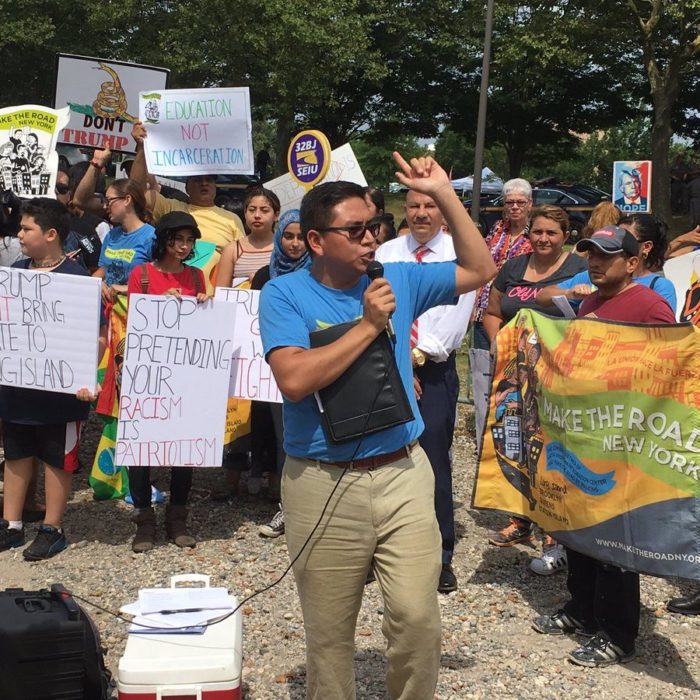

The US Census Bureau ranks Westchester as one of the most unequal counties in America and second most unequal in New York State, in terms of the gap between wealth and poverty. Westchester’s Latinx community has grown in recent years. Latinxs now make up 23% of the population. Politicians often use anti-immigrant attacks to bolster their campaigns, further marginalizing the immigrant community there. MRNY’s Westchester center provides critical legal support, including domestic violence resources, along with grassroots organizing and civic engagement efforts to build the political power of Latinx and immigrant voters in Westchester.
